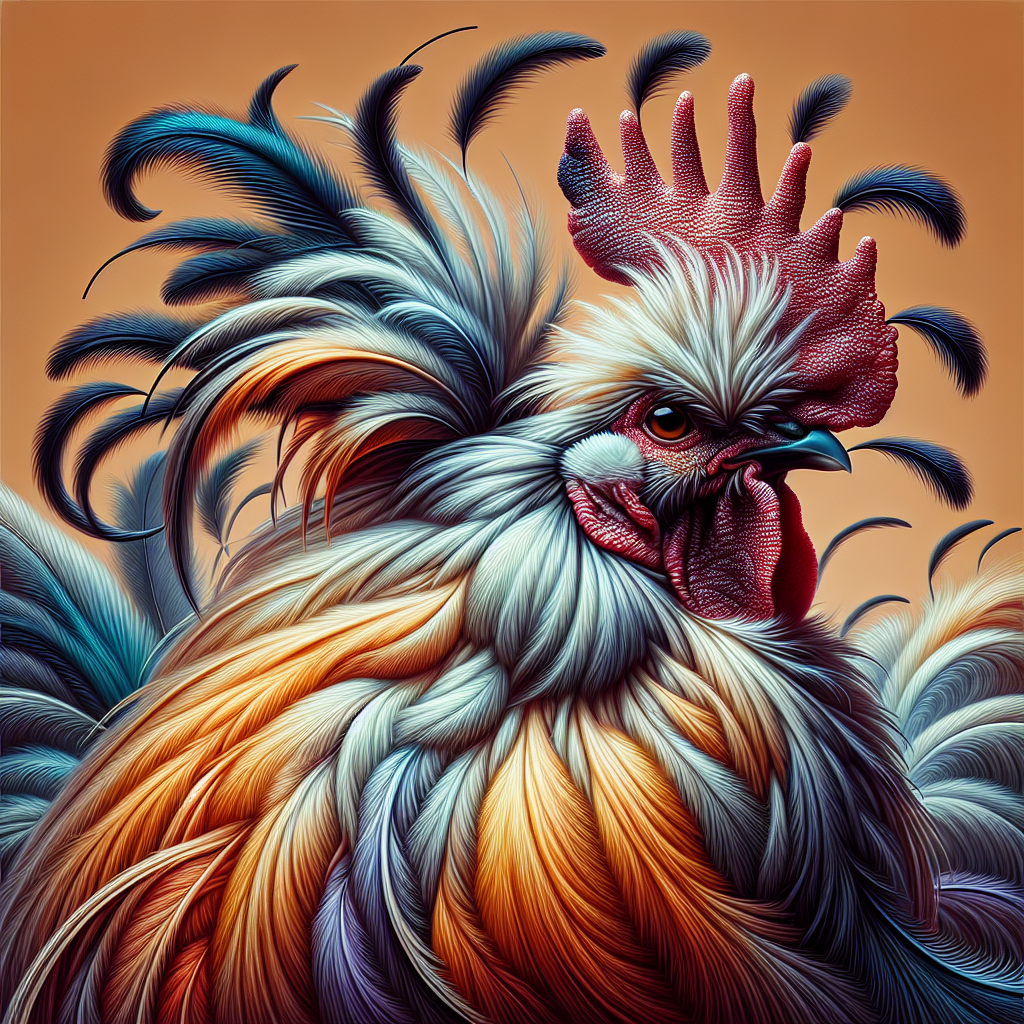So, you’ve decided to get chickens and you’ve realized that there is a wide variety of breeds to choose from. But how do you know which one is right for you? When comparing different chicken breeds, it’s important to consider a few key factors that can greatly impact your experience as a chicken owner. From factors like egg production and temperament to breed size and climate adaptability, understanding these main factors will help you make an informed decision and find the perfect feathered friends for your backyard. When it comes to keeping chickens, there are several factors to consider before deciding on a breed. Whether you’re looking for personal enjoyment, egg production, or meat production, it’s important to choose a breed that suits your needs. Additionally, factors such as climate and environment, temperament and behavior, size and appearance, egg production, meat quality, feed and nutrition, health and disease resistance, life span and longevity, and breed availability and cost should all be taken into account. Let’s explore each of these factors in more detail to help you make an informed decision.
Purpose of Keeping Chickens
Personal enjoyment
Many people choose to keep chickens simply for the pleasure they bring. Chickens can be fascinating creatures to observe and interact with. Their quirky behavior and amusing antics can provide endless entertainment for you and your family. From watching them scratch and peck in the yard to seeing them interact with each other, keeping chickens can certainly bring joy and a sense of fulfillment to your life.
Eggs production
One of the most common reasons for keeping chickens is to have a steady supply of fresh eggs. Different breeds have varying levels of egg-laying abilities, so it’s essential to choose a breed that meets your egg production requirements. Some breeds, such as Leghorns and Australorps, are known for their excellent egg-laying capabilities and can provide a consistent supply of eggs throughout the year.
Meat production
If your primary goal is meat production, certain chicken breeds are better suited for this purpose. Broiler breeds, such as Cornish Cross, are specifically bred for their fast growth rate and large meat yield. These breeds are known for their tender and flavorful meat, making them ideal for those looking to raise chickens for consumption.
Climate and Environment
Temperature and weather conditions
Different breeds have varying tolerance levels to different climates and weather conditions. Some breeds, like the Rhode Island Reds and Wyandottes, are more cold-hardy and can withstand colder temperatures. On the other hand, Mediterranean breeds like Leghorns and Minorcas are better suited for hotter climates. Consider the climate and weather patterns in your area and choose a breed that can thrive in those conditions.
Predator presence
Predators can be a significant concern when raising chickens. It’s essential to choose a breed that has a reputation for being alert and vigilant against predators. Breeds such as the Rhode Island Reds and Plymouth Rocks are known for their natural instinct to protect themselves and their flock, making them less vulnerable to predators.
Space availability
The amount of space you have available for your chickens will also impact your breed choice. Some breeds are more active and require more room to roam and forage. If you have limited space, selecting a breed that is known for being content in confined areas, such as the Sussex or Silkies, may be a better option.
Temperament and Behavior
Friendliness
If you plan to interact closely with your chickens, considering their temperament is crucial. Some breeds are naturally more friendly and enjoy human interaction, making them great pets and easy to handle. Cochins, Orpingtons, and Silkies are known for their docile nature and friendly disposition, making them ideal for families with children or those looking for a backyard pet.
Aggressiveness
On the other hand, some breeds can be more aggressive and territorial, which may not be suitable for households with young children or limited experience. Breeds such as Gamefowl or Old English Game are known for their assertive nature and may require more careful handling and management.
Activity level
The activity level of a breed can also affect your choice. Some chickens are more active and enjoy ranging and foraging, while others are content with less activity. Consider the space you have available and the amount of exercise and stimulation your chickens will require.
Size and Appearance
Body size
Chickens come in a variety of sizes, from small bantams to large standard breeds. The size of the breed you choose should align with the space you have available and the purpose for which you’re keeping them. Bantam breeds, like Silkies and Sebrights, are perfect for smaller gardens or urban environments, while larger breeds, such as Jersey Giants or Brahmas, require more spacious accommodations.
Plumage color and pattern
The color and pattern of a chicken’s plumage can add beauty and visual interest to your flock. From solid black to striking multi-colored patterns, there are countless options to choose from. Whether you prefer bright and vibrant plumage or more subdued tones, selecting a breed based on their appearance can help create an aesthetically pleasing flock.
Head shape
Although head shape may not be the first consideration for many, it does contribute to the overall appearance of a breed. From the distinctive single comb of breeds like Rhode Island Reds to the crested heads of Polish chickens, head shape can add uniqueness and personality to your flock.
Egg Production
Frequency of egg laying
If your goal is to have a consistent supply of eggs, it’s essential to choose a breed with a reputation for high egg production. Breeds like Leghorns and Australorps are known for their ability to lay a large number of eggs throughout the year, making them popular choices among egg producers.
Egg size and quality
Different chicken breeds produce eggs of various sizes and qualities. Some breeds, such as Sussex and Orpingtons, produce medium-sized to large eggs, while others like Leghorns lay smaller eggs. Consider your personal preference and the specific requirements of any recipes or culinary preferences you have.
Meat Quality
Size and weight at maturity
If you’re raising chickens for meat, choosing a breed that reaches a desirable size and weight at maturity is essential. Broiler breeds, such as Cornish Cross, are known for their rapid growth rate and large meat yield. These breeds can reach market weight in a relatively short period, making them suitable for meat production.
Tenderness and flavor
The tenderness and flavor of chicken meat can vary depending on the breed. While some breeds have been specifically bred for their meat quality, others may have more variable outcomes. Researching the preferred meat characteristics of different breeds can help ensure you select a breed that meets your expectations.
Feed and Nutrition
Dietary requirements
Chickens have specific dietary requirements for optimal health and egg or meat production. Some breeds may have special dietary needs or may be more finicky eaters. Consider whether the breed you’re interested in has any specific nutritional requirements and if you can accommodate those needs.
Feeding habits
Different breeds may have different feeding habits, with some being more prone to forage for their food, while others may be content with a commercially prepared feed. If you prefer a low-maintenance approach and have limited space for your chickens to forage, choosing a breed that thrives on a balanced diet of commercial feed may be more suitable.
Health and Disease Resistance
Resistance to common diseases
Certain breeds have been bred to be more resilient to common diseases, which can be advantageous when it comes to preventing potential health issues. Research which diseases are prevalent in your area and choose a breed that is known for its disease resistance.
Susceptibility to parasites
Different breeds may have varying levels of susceptibility to external and internal parasites. Some breeds, like Silkies, with their fluffy feathers and feathered legs, may be more prone to parasite infestation. Considering the parasite load and management methods required for a particular breed can be beneficial for maintaining a healthy flock.
Life Span and Longevity
Average lifespan
The average lifespan of a chicken can vary depending on the breed. While some breeds may live for 5-8 years, others can live for over a decade. Understanding the life span of different breeds can help set realistic expectations and plan for the long-term care of your flock.
Elderly care considerations
As chickens age, they may require special care and attention. Some breeds may have specific health issues associated with old age, such as arthritis or decreased egg production. If you plan to keep your chickens for their entire lifespan, selecting a breed that has a reputation for aging well can help ensure their comfort and well-being in their older years.
Breed Availability and Cost
Locally available breeds
The availability of different chicken breeds can vary depending on your location. Before settling on a particular breed, research which breeds are readily available in your area. Locally available breeds may be easier to obtain, and you may also find local breeders who can provide valuable insights and assistance.
Price ranges and affordability
The cost of purchasing and raising chickens can vary widely depending on the breed and other factors. Some heritage and rare breeds may come with a higher price tag, while common breeds may be more affordable. Consider your budget and the long-term costs associated with keeping a particular breed, including feed, housing, and veterinary care, before making a decision.
By considering these factors, you can make an informed decision when comparing different chicken breeds. Whether you’re seeking personal enjoyment, egg production, or meat production, there is a breed out there that can fulfill your needs. Take the time to research and learn more about various breeds, and consult with experienced chicken keepers or breeders to ensure you select the right breed that will thrive in your climate and environment while providing you with years of joy and fulfillment.




